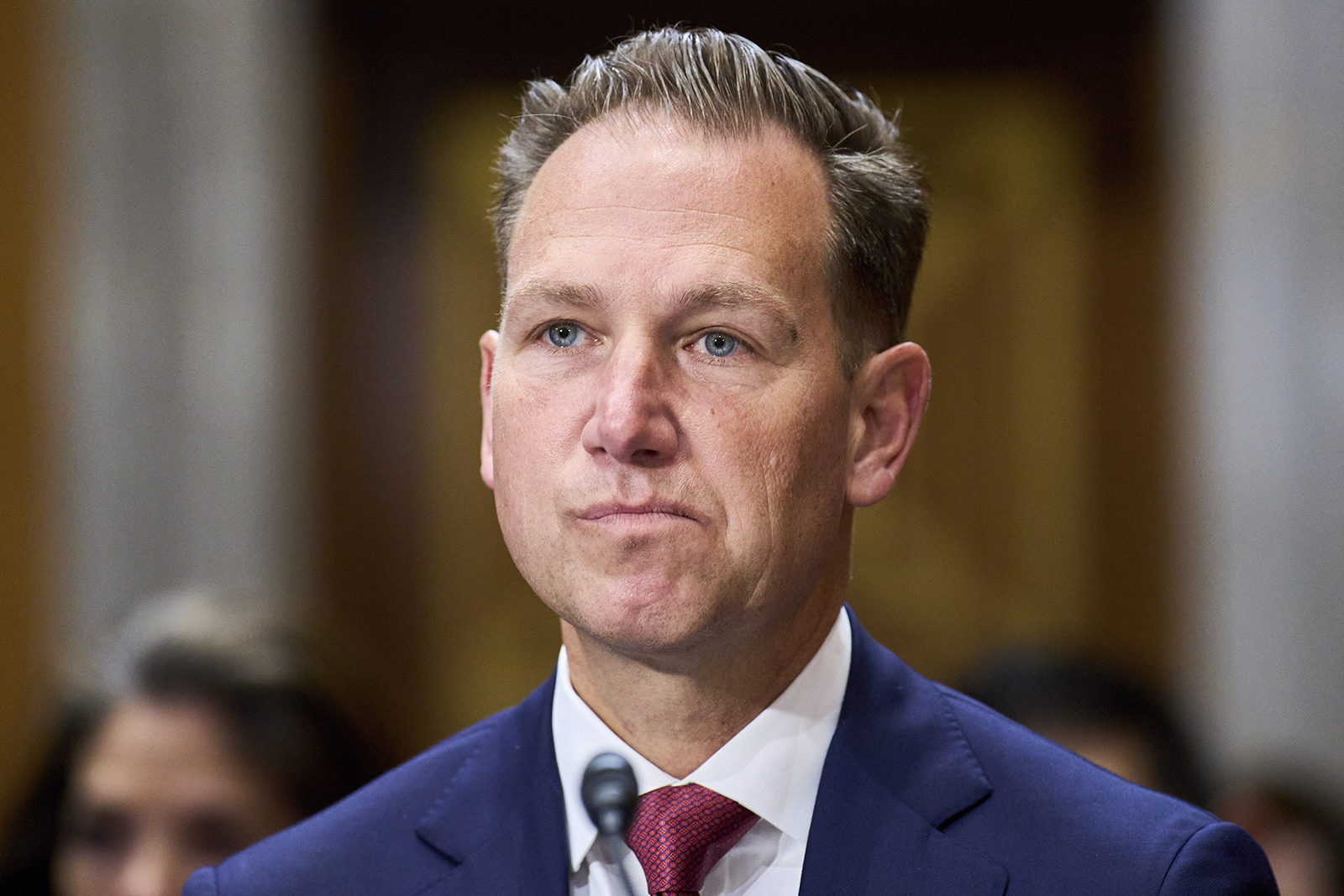
(RNS) — On Aug. 2, the U.S. Senate in a party-line vote confirmed Brian Burch as President Trump’s U.S. ambassador to the Holy See. Burch is an unusual choice as a liaison to Pope Leo XIV, whom many observers see as continuing the vision of the late Pope Francis and whom Burch, the co-founder of the far-right voter advocacy group Catholic Vote, spent much of the past decade criticizing.
Burch has not had much bad to say yet about Leo, choosing during his pre-confirmation period to focus on the two men’s shared upbringing in Chicago. But Burch is likely to find himself in conflict with the new pontiff, who is more moderate than Francis but still so far seems well to the left of Catholic Vote on immigration, nationalism and foreign aid. Testifying at his confirmation hearings, Burch defended the Trump administration’s slashing of foreign aid, saying, “Millions, if not billions, of our dollars have been going to places around the world that are not aligned with United States’ interests.”
The Vatican, which has seen its own global humanitarian initiatives suffer from the funding cuts, has been sharply critical of the withdrawal of billions in aid from the global humanitarian aid efforts.
An ambassador, of course, can be expected to represent its administration’s views to a foreign state. But the choice of Burch also signals that the Trump White House is willing to wade into the struggle in American Catholicism between Catholics focused on the church’s teachings related to economic and social justice and Catholics centered on its doctrine regarding gender and sexual morality. In picking Burch, in other words, the administration is ensuring that that culture war remains alive in Catholicism.
The beginnings of this split go back to the reforms of the Second Vatican Council in the early 1960s, but it can be traced, on the socially conservative side, to the bishops’ staunch opposition to legal abortion beginning in the early 1970s, leading to their making common cause with evangelical Christians, to the more recent battle against marriage equality and access to gender-affirming care. At the same time, many progressive Catholics emphasized opposition to the death penalty and nuclear proliferation and, in recent days, sided with protecting immigrants and welcoming LGBTQ+ Catholics, as championed by Francis.
On the one side are figures such as Paul Weyrich, who cemented ties with the religious right in the 1970s and ’80s and other Catholic thinkers who brought intellectual arguments to the evangelical movement. On the other are Sr. Helen Prejean, a Catholic nun whose book “Dead Man Walking” recounting her journey into anti-death penalty advocacy became a best seller, an Oscar-winning film and well-loved opera; and the Rev. James Martin, a Jesuit most known for his work for and with LGBTQ+ Catholics.
The lines are not firmly drawn — vocally pro-immigrant bishops make no bones about their opposition to abortion, and it was Pope John Paul II, a conservative icon, who affirmed the church’s stand against the death penalty in his 1995 encyclical Evangelium Vitae. But in the past decade, a new Catholic right has formed around the Old Latin Mass, spiritual penalties for liberal Catholic politicians and, more recently, branding themselves not only conservative but Christian nationalist.
Burch and his Catholic Vote co-founder, Joshua Mercer, rose out of this new movement. Mercer’s X profile identifies him as an “11th-generation American,” dog-whistling his sympathies with nativist Catholics who include Vice President JD Vance. Mercer is a graduate of Hillsdale College, the historically Baptist institution that has long served as an incubator for American political evangelicals whose imprimatur has lately become a sought-after Catholic right credential.
It is difficult to see Burch’s appointment as anything other than an attempt by Trump to use his envoy to the Vatican as leverage with the religious right. It marks a departure from Trump’s first term, when, hewing to traditional Republican behavior toward the Holy See, he named Callista Gingrich, wife of the GOP Jacobin Newt Gingrich, to serve as U.S. ambassador. The shift is echoed in the makeup of Trump’s Religious Liberty Commission, whose members and advisory boards include no progressive or moderate faith leaders.
If Burch’s appointment blatantly marginalizes progressive and moderate Americans of faith, it is part of a broader pattern of hostility toward all progressive and moderate religious communities, which have in turn refused to genuflect to the president. The friction was obvious in the July 31 detention by immigration agents of Yeonsoo Go, the daughter of an Episcopal priest in the Diocese of New York. (She has since been released.)
Retired Army General Michael Flynn, Trump’s disgraced first-term national security adviser, has spread unfounded accusations that the Evangelical Lutheran Church of America has illegally taken government money to help refugees and questioned the faith of those affiliated with the mainline denomination.
Burch’s appointment must be seen in this larger context. The administration is within its rights to send an ambassador to the Vatican who will represent the conservative agenda, even if he will create ill will with a Vatican increasingly defined by its commitment to humanitarianism and social justice. But by actively undermining progressive and moderate faith voices at home, the White House is profligately deepening divisions in American religion.
(Katherine Kelaidis, a research associate at the Institute of Orthodox Christian Studies in Cambridge, England, is the author of “Holy Russia? Holy War?” and the forthcoming “The Fourth Reformation.” The views expressed in this commentary do not necessarily reflect those of RNS.)
